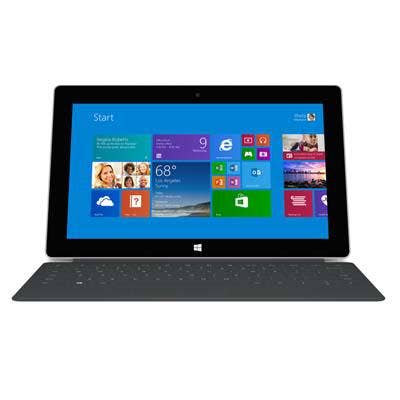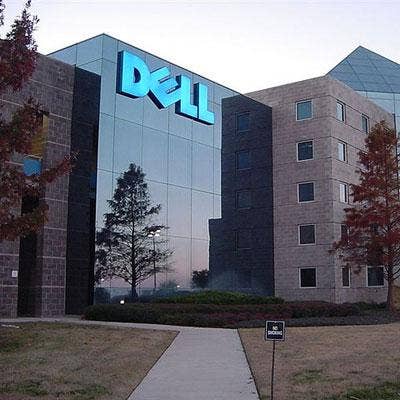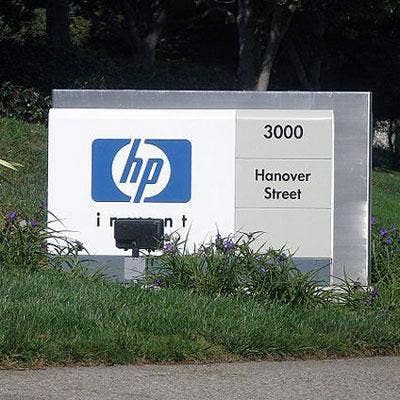The 10 Biggest Channel Stories Of 2013

2013: Vendor Comebacks, Channel Shakeups And More
Another year is in the books for the IT channel, and this one was full of surprises and shakeups, from HP's turnaround to Dell's recent indirect sales shift. In addition, 2013 was full of industry-altering trends, from the rise of mobile devices (and a certain popular OS) to the continuing growth of off-premise IT services.
Here are the 10 biggest channel stories of the year.

10. The Federal Government Shutdown
The U.S. federal government shutdown was relatively short -- just over two weeks -- but enormously frustrating and painful for both government and private sector solution providers. Government VARs were already grappling with decreased IT spending, and the shutdown threw even more uncertainty and apprehension into the equation. And they weren't the only ones hurting, too; commercial solution providers with clients that did business with or for the federal government also took a short term hit. Luckily, Washington eventually got its act together. But the shutdown was just another episode to negatively impact the fragile economic recovery this year.

9. The Massachusetts Software Services Tax
This was a bad one not just for the Bay State but also for the entire North American channel. Last summer the Massachusetts state legislature quickly passed a 6.25 percent software services tax that affected solution providers, ISVs and just about any company that provided any software services to customers in Massachusetts. And the tax didn't just affect VARs and integrators based in the state; it hit any company doing business in the state, too. Thankfully, the law was eventually repealed weeks later after considerable pressure from a broad range of companies, from local solution providers to Staples and BJ's Wholesale Club. But the fact the tax passed at all represents a chilling warning for the channel that new Internet and technology-related taxes are on the government's radar.

8. Off-Premise Revenue Increasing
Whether it's cloud services, managed services or any other kind of remote service, revenue from off-premise solutions continued to spike in 2013, according The Channel Company's exclusive research from The Institute of Partner Education And Development (IPED). According to IPED, solution providers shifted more toward MSP (7 percent in 2012 to 11 percent in 2013) and cloud models (1 percent to 4 percent) as their primary revenue drivers while traditional the reseller model fell from 50 percent to 39 percent. In addition, "progressive" solution providers, which have at least some recurring revenue via managed or cloud services, now account for 42 percent of VARs surveyed by IPED, the largest such segment in the channel according to the survey.

7. The Rise Of White-Label Services
For solution providers looking to build a cloud business through partnerships, 2013 was a very good year. Thanks to a host of attractive white-label programs from cloud providers and telecom vendors, VARs can start branding third-party SaaS, IaaS and other cloud services as their own for their clients. As a result, smaller solution providers who can't front the cost of building their own data centers can now jump into the cloud business quickly and easily by teaming up with the likes of Dimension Data, Intermedia, Intronis and others. While there are some risks -- what happens when the third-party cloud goes down but it's your name on the service? -- the rewards are many for cloud-hungry VARs.

6. Cloud, MSP Mergers And Acquisitions
Mergers and acquisitions are nothing new in the channel, and the spate of consolidation following the 2009 economic recession appears to have slowed. But there are still plenty of deals being made, as 2013 has proven. But instead of financial concerns and economic pressure triggering deals, this year was marked by a flurry of more strategic deals as solution providers of all shapes and sizes sought to build out their off-premise services business by purchasing MSPs or cloud-focused VARs. For example, CSC recently acquired enterprise cloud management player ServiceMesh, while Perficient picked up SaaS specialist CoreMatrix Systems. And Dimension Data parent company NTT Communications made not one but two acquisitions recently, buying Virtela Technology Services and RagingWire for a total of $875 million.

5. Android Ascends
Google's mobile platform has been a hit with consumers, but Android has also seen a surge in the enterprise this year, according to mobility VARs. Yes, there are still big security concerns with Android, which has proven to be a favorite target of malware. But Android's flexibility and ease of use have won over IT departments and developers, and solution providers say the feature-rich mobile OS has surpassed Apple's iOS in areas such as multitasking. With the rise of mobility and BYOD, Android is showing no signs of slowing down.

4. Windows 8 Struggles
It's been a tough year for Microsoft. The company's newest operating system struggled to jumpstart PC sales this year, and while some channel partners reported little to no demand for Windows 8, others were actively downgrading clients to Windows 7. Part of the issue was the brand new interface that was designed for a touchscreen experience, which proved too unfamiliar for many PC users. Another issue was the removal of the "Start Menu" button, which robbed users of a much-needed light post. While the release of Windows 8.1 has helped fix some issues, VARs are still waiting for the OS to have a positive impact on their businesses.

3. Microsoft Bypasses Channel With Surface
Microsoft had other problems this year besides trying to jumpstart Windows 8 sales. This was supposed to be the year that Microsoft became competitive in the tablet market. Unfortunately, a curious and much-maligned sales strategy got in the way. This summer, the software giant finally made its Surface and Surface Pro tablets available to the channel -- but Microsoft only authorized 10 U.S. partners to sell the tablets under the new Microsoft Devices Program. Meanwhile, thousands of other Microsoft certified partners were left out in the cold, wondering when they'd get their chance to sell Surface. And they're still waiting.

2. Dell Revamps Channel, Moves Direct Accounts To Partners
This was not only the year that Dell went private but also the year that the former direct sales champion made a major overhaul to its partner program and entire sales strategy. Case in point: the company moved about 200,000 existing Dell Direct customer accounts to channel partners and created a 20 percent "compensation accelerator" incentive for direct salespeople to work with solution providers. Plus, Dell combined its direct and indirect sales organizations under one roof, which is now overseen by Bill Rodrigues, Dell's new vice president of global channels and alliances.

1. HP's Comeback
Remember where HP was at this time last year? We do. The company had just taken a whopping $8.8 billion charge over its disastrous Autonomy acquisition, and it was leaking high-profile channel executives too. But 2013 was a different story as a re-energized and refocused HP emerged. Under CEO Meg Whitman, the company got back on track with a full-court channel press and market share gains in key products categories like blade servers, PCs and printers. The second year of Whitman's five-year turnaround plan was a success on a number of fronts, and solution providers couldn't be happier.